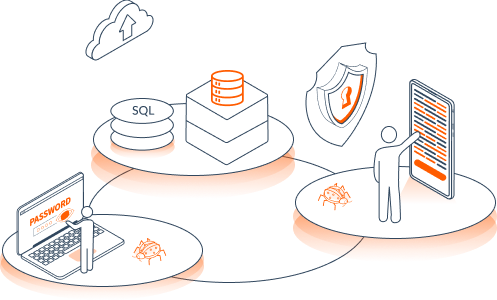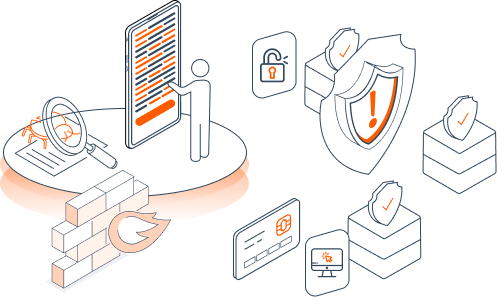What are DDoS attacks?
A Distributed Denial-of-Service (DDoS) attack is a malicious attempt to disrupt the normal functioning of a company's network resources, rendering them inaccessible to their intended users. In essence, the DDoS attacker seeks to interrupt the services hosted on an organization's server, causing a significant disruption in its online operations.
Unlike traditional denial-of-service attacks carried out by a single source, DDoS attacks are globally distributed and orchestrated from numerous compromised devices.
A Distributed Denial-of-Service (DDoS) attack is a malicious attempt to disrupt the normal functioning of a company's network resources, rendering them inaccessible to their intended users. In essence, the DDoS attacker seeks to interrupt the services hosted on an organization's server, causing a significant disruption in its online operations.
Unlike traditional denial-of-service attacks carried out by a single source, DDoS attacks are globally distributed and orchestrated from numerous compromised devices. This global distribution allows the attacker to flood the target site with a massive volume of malicious traffic, overwhelming its infrastructure and effectively preventing legitimate users from accessing the resources hosted on the site.
The primary objective of DDoS attacks is to rapidly consume an organization's internet-accessible resources, leading to a saturation point where it becomes incapable of providing its usual services. This deliberate resource exhaustion results in a denial of service for genuine users, causing inconvenience, frustration, and potential financial losses for the targeted organization.
DDoS attacks can take various forms and may involve exploiting vulnerabilities in network protocols, leveraging botnets (networks of compromised devices), or using amplification techniques to magnify the volume of malicious traffic. The motives behind DDoS attacks can vary, and in some cases, they may serve as a precursor to more sinister activities, such as ransomware.
In instances where DDoS attacks are linked to ransomware, malicious actors may employ the tactic of disrupting a network's services as a means to coerce the affected organization into paying a financial ransom. The attackers, holding the network's resources hostage, may demand compensation in exchange for releasing the targeted organization from the debilitating effects of the DDoS attack. This introduces a financial dimension to the attack, amplifying the potential impact on the targeted entity beyond the immediate disruption of services.
As organizations increasingly rely on digital platforms to conduct business and deliver services, the threat of DDoS attacks remains a significant concern. Implementing robust cybersecurity measures, including intrusion detection systems, traffic filtering, and DDoS mitigation strategies, is crucial for organizations to fortify themselves against the disruptive and potentially costly consequences of such attacks.
Read More +
Read Less -





































 310 reviews on
310 reviews on 



























